
Für eine deutsche Übersetzung dieser Seite einfach die Brandenburger Flagge anklicken
 |
Click the Brandenburg Flag for a German translation Für eine deutsche Übersetzung dieser Seite einfach die Brandenburger Flagge anklicken |


|
|
Our Solar SystemA collection of pictures of objects in our solar system that have been visited by space probes. |
|



Like our other space galleries, the pictures have not been selected because For those more interested in the science behind the images, we have provided the respective Wikipedia links. |


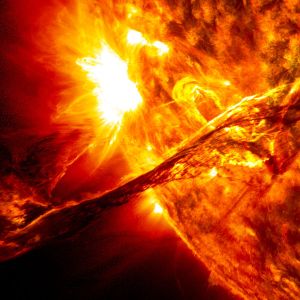
|
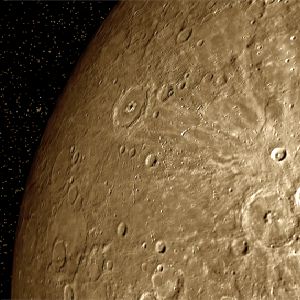
|
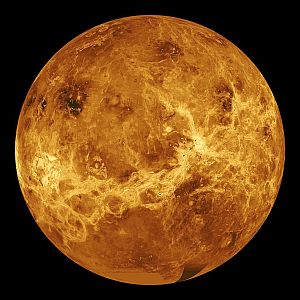
|
|
Mercury
|
||
|
NASA's SDO and ESA's SOHO probes have taken some amazing pictures of our home star. |
NASA's Mariner 10 was the first probe to fly by Mercury. Then, Messenger orbited the planet for four years, before crashing into its surface in 2015. |
The first closeup pictures of Venus were taken by Mariner 10 in 1974, but no camera could penetrate the planet's cloud cover. In 1990, the Magellan probe took extensive radar images, leading to a composite image of the planet. |
|
Click here for more pictures of the Sun |
Click here for more pictures of Mercury |
Click here for more pictures of Venus |



|

|
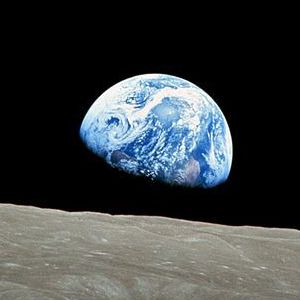
|
|
The Earth
|
||
| Pictures of Earth from space have been taken for as long as there was spaceflight. The first colored picture of the entire Earth was taken in July 1967 by the American satellite DODGE. |
The International Space Station is humanity's outpost in Earth orbit. The station's Cupola is an ideal spot to observe and photograph the Earth. |
The "Eartrise" picture taken by the crew of Apollo 8 at Christmas Day 1968 is on of the most iconic pictures of our home planet. |
|
Click here for more pictures of the Earth seen from orbit |
Click here for more pictures of the Earth seen from the ISS |
Click here for more pictures of the Earth seen from the moon |



|

|

| |
|
The Earth seen from far away
|
The Moon
|
||
|
Leaving Earth orbit, our planet soon becomes one star among many. This picture of the Earth was taken in 2013 by the Cassini spacecraft in orbit of Saturn. |
There is no shortage of iconic pictures of the moon. This one, taken by American photographer Laurie Hatch is one of our favorites. |
Automatical and crewed spacecrafts have been orbiting the Moon for over 50 years. Here are some of the best pictures from Lunar orbit. | |
|
Click here for more pictures of the Earth seen from other planets |
Click here for more early pictures of the Moon |
Click here for more pictures from Lunar orbit |



|
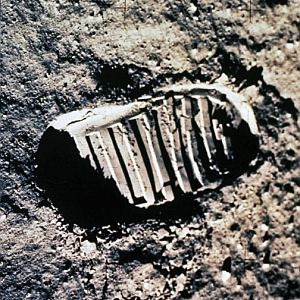
|

|
|
The Apollo Program
|
Mars
| |
| Since the landing of Luna 9 in 1966, automatic probes and rovers have sent pictures from the Lunar surface. |
In the 1970, twelve men walked on the Moon. Here are some of the most iconic pictures of humanity's first visit to another world. |
Leaving Earth orbit, our planet soon becomes one star among many. This picture of the Earth was taken in 2013 by the Cassini spacecraft in orbit of Saturn. |
|
Click here for more pictures of the Lunar surface |
Click here for more pictures of the Apollo program |
Click here for more pictures of Mars |



|

|

| |
|
Phobos and
Deimos
|
|||
|
Since 1971, five landers and four rovers have successfully transmitted data and thousands of pictures from the Martian surface. |
The Martian moons are the objects closest to Earth that have never been directly visited by a space probe, but we got some good pictures from flybys. | Before reaching the next planet, one has to cross the Asteroid Belt. A number of spacecraft have done so and have taken pictures of over a dozend asteroids. | |
|
Click here for more pictures of the Martian surface |
Click here for more pictures of Mars' Moons |
Click here to move on to the Asteroid Belt |



|

|

|
|
Ceres and
Vesta
|
Comets
|
|
| We devoted an extra page to the two largest objects in the Asteroid Belt, Ceres and Vesta. Both objects were orbited by the Dawn spacecraft. | Since 1985, a number of comets have been visited by space probes. In 1986, an armada of crafts had close encounters with Halley's Comet. | In 2014, ESA's Rosetta probe entered orbit around comet Churyumov-Gerasimenko and deployed a lander. We devoted an extra page to that particular comet. |
|
Click here for pictures of Ceres and Vesta |
Click here for pictures of comets visited by spacecrafts |
Click here for more pictures of comet Churyumov-Gerasimenko |



|

|

|
|
Jupiter
|
Jupiter Orbit
|
Io
|
| The first closeup pictures of the largest planet in the Solar System were delivered during the flyby of Pioneer 10 in 1973. | The Galileo probe orbited Jupiter from 1995 to 2003. The Juno spacecraft entered Jupiter's orbit in 2016 and still circles the planet. | We devoted extra pages to Jupiter's four largest moons, starting with Io, the most vulcanic object in the Solar System. |
|
Click here for pictures of Jupiter flybys |
Click here for pictures of Jupiter from orbit |
Click here for more pictures of Jupiter's moon Io |


|
Back to Space Page |
Back to English Main Page |
 Back to Start Page |